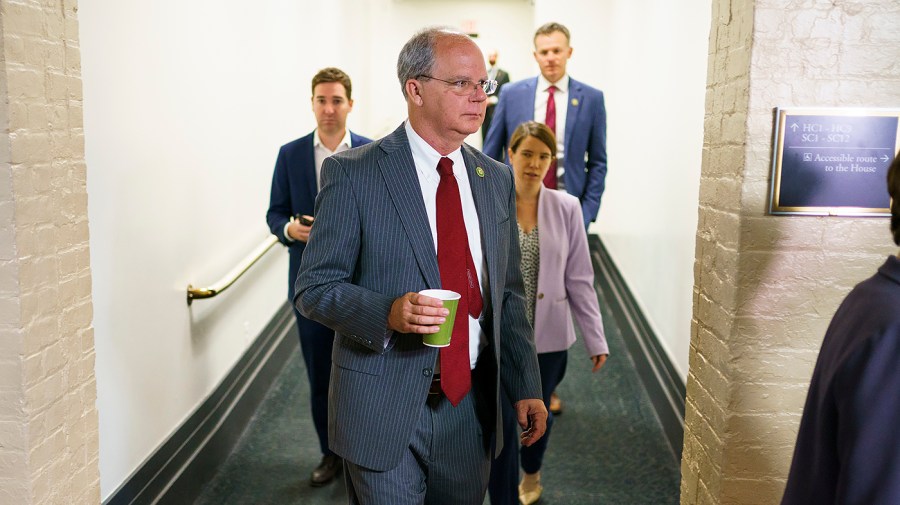A key House committee is pushing forward with trying to advance its portion of President Trump’s legislative agenda next week, even as Republicans disagree over how deeply to cut Medicaid.
The House Energy and Commerce Committee is planning a May 7 meeting to finalize and advance its portion of the bill, leaving little time for members to iron out differences. The legislation calls for the committee to find $880 billion in savings over a decade, with most of it expected to come from health programs.
Energy and Commerce Committee Chair Brett Guthrie (R-Ky.) indicated one of the most significant hangup is what to do about people in states that expanded Medicaid.
The Affordable Care Act allowed states to expand Medicaid to people with slightly higher incomes, with the federal government picking up 90 percent of the extra costs. Forty-one states, including many led by Republicans, chose to expand Medicaid.
Republicans have been looking for ways to roll back that extra spending to save billions of dollars. Cutting those enhanced payments would bring significant savings, but it would represent a major cost shift to states, something that moderate and swing district Republicans have balked at.
“We’re still having discussions on FMAP and per-capita allotments. Those are the biggest discussions we have to have,” Guthrie told reporters Tuesday. “If we can get there, that’s what we’re looking at.”
Guthrie was referring to proposals to either lower the federal government’s 90 percent matching reimbursement rate for expansion states — known as FMAP — or to cap federal spending on a per beneficiary basis.
Eliminating the enhanced federal match for the Medicaid expansion population would save the federal government $626 billion over a decade, according to an analysis by health policy nonprofit KFF.
But governors would have to decide if their states would spend the extra billions of dollars to continue the expansion, which would require tax increases, or cut benefits.
About a dozen states also have “trigger” laws that would end Medicaid expansion if the federal match changes or is ended.
A per capita cap on the Medicaid expansion population wouldn’t lower the federal match in statute, so it may not activate the trigger laws in the same way, according to KFF experts.
But it could shift $246 billion in costs to states over the next ten years and would still result in a significant lowering of the federal match for expansion states.
The proposed changes have put moderate Republicans in a bind, and some are pushing back.
If all members are present and voting, Speaker Mike Johnson (R-La.) can lose no more than three Republicans on a party-line vote.
When asked specifically about lowering the federal match or per capita caps, Rep. Mike Lawler (R-N.Y.) told reporters he would not support either.
“I don’t know why you guys keep asking the same stupid f—ing question,” Lawler said. “I just said from the very beginning, I’m against per capita caps. I’m against changing the FMAP floor.”
Rep. Jeff Van Drew (R-N.J.) said he isn’t drawing a red line at any specific savings target. He said he supports federal work requirements, excluding noncitizens from eligibility, and letting states make eligibility checks every six months instead of once a year.
“I’m a simple guy. People who are getting stuff now, who are legal and eligible should not be cut,” Van Drew said. He added there are at least 10 or 12 Republicans who “won’t go along” with Medicaid benefit cuts.
Rep. Don Bacon (R-Neb.) similarly said he would support work requirements and eligibility audits, which he said could save $500 billion—but he indicated he was more attached to the policies than the number.
If leadership has other ideas, “they’re going to have to sell me what those other things are,” Bacon said. “I really don’t like just passing the costs on in the states … I’m not keen on that.”
Republicans in the House and Senate are using a process known as budget reconciliation to try to enact Trump’s domestic agenda with only GOP votes. Medicaid has emerged as one of the major sticking points in the massive piece of legislation, which is also expected to include an extension of the Trump tax cuts, other spending cuts and an increase in the debt ceiling.
Mychael Schnell contributed.

